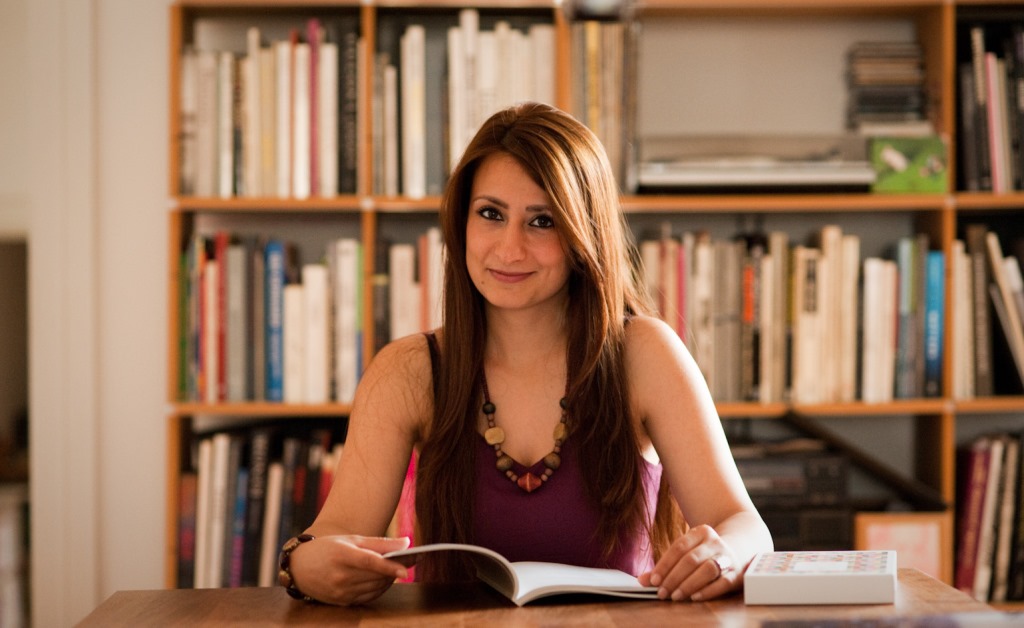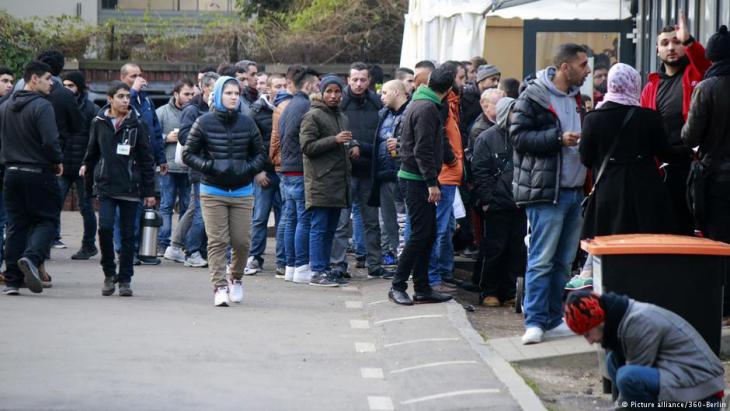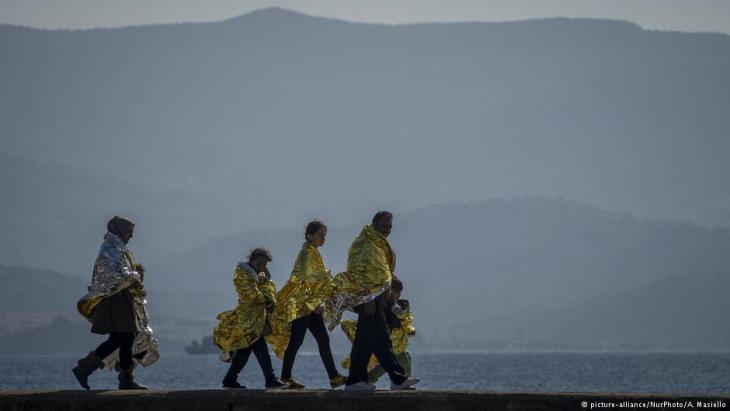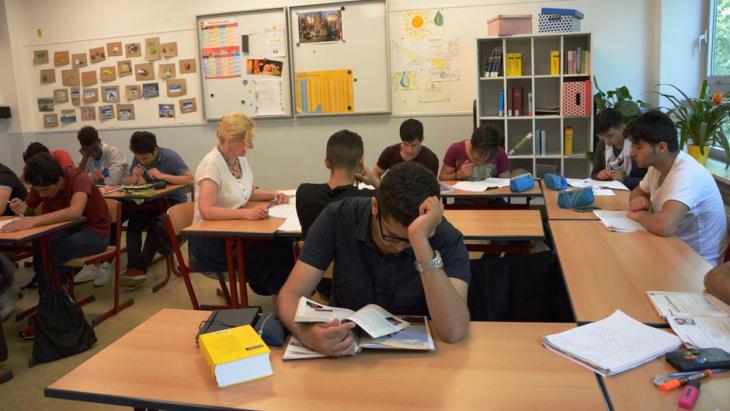Writer Widad Nabi: ″Integration is the search for common ground″

We have acquired a new title that will accompany us to our last breath: refugees. This is what I realised on my first day in Germany, 12 August 2015, as I stood in what seemed like an endless line in Berlin′s Office of Health and Social Affairs, to register myself officially as a refugee. From now on I would be Widad Nabi, refugee.
I had crossed seven countries fleeing death – the same death that is still reaping the souls of people at home, as we speak.
I sought refuge in a country about which I knew next to nothing besides the poems of Rilke and the writings of Goethe, Holderlin, Gunter Grass, Herta Muller and Heinrich Heine. Perhaps it was particularly the poems of Rilke that drew me to this country, which opened its heart and embraced many Syrians.

Yet on that day, 12 August, I saw the other, unfamiliar faces of Germany. I met with the unpoetic and the non-literary, the callous face of bureaucracy on one hand and the reticent affection the locals bashfully displayed towards us – those forced to flee their homes by an ongoing war that no one seemed willing to end.
I asked myself then, do they still recall their own history with the war and the devastation they brought down on their own cities? Is that why they seem to feel with us?
Then I realised that emotions change nothing in a country wallowing in bureaucracy. I had to move from Berlin to a refugee camp in Eisenhuttenstadt. It resembled a detention camp with its surrounding fence; the sour-faced security officers in blue uniforms and acerbic expressions; and the long wait to get one′s simplest needs met.
I began to sink into despair and had to deal with the same agonies as everyone else: the hardships of acclimatising; the heaps of paperwork; the disdain of public servants.

Their looks said it all –I had gone from being Widad, the young poetess, into a mere binder of documents. That binder became more significant than my whole existence. Every document was so important that it could rob me the chance of proving my status as a legally-documented refugee.
Language remains the principal barrier
Luckily, however, it was not too long before I finally relocated to Berlin, where I had to start from scratch and begin my life anew.
With open arms, Berlin embraced me and let me into its mysteries. I bonded with its libraries, coffee shops and historic neighbourhoods. I met the city′s many faces and enigmas and read my poems in some of its hottest spots.
There I found the opportunity to meet Germans and get to know them. They were very friendly, most of them stood in solidarity with the traumatic events that were taking place at home.
As a young woman, an avid reader and a writer, I found myself gradually becoming one of the locals in Berlin, a city that embraces foreigners and welcomes poets, eccentrics, capitalists, beggars, fanatics and progressives alike.
The libraries, shelves laden with books in a language still somewhat unfamiliar to my ears, were most inviting: they were the master key to finding my way in the Berlin community.
Failing to be convinced by the hype about integration courses, I followed a path that led to the heart of the city – tracing the footsteps of other writers and poets before me. Thus I got to know Berlin and became one of its inhabitants.

Language remains the principal barrier. German is difficult, yet without a good command of the language, one cannot overcome the feeling of foreignness. I think about my mother and my other relatives in their fifties, who were never even educated in their native language, how would they be able to integrate in a such new and unfamiliar environment?
Language courses are not enough: people need the support of the German community, they need more social events where they can meet with their fellow citizens up close and personal.
A haven in poetry and literature
Naturally every story of integration begins with difficulty. Yet, ultimately they will all find a way of communicating, even if in the beginning much remains confined to the realm of body language and gestures.
Integration is not a garment we put on and – voila! – instantly become German. It is rather the acceptance of cultural differences and the search for common ground.
I found my haven in poetry and literature, they were my gateway to integrating with the local community and I am certain that everyone else has their own key.
I remain hopeful that the war will end soon and that Syrians will be able to return to their homes. They would still come to visit this beautiful country that sheltered them when they were most vulnerable; when most countries around the world copped out on the destruction of a country and the displacement of millions of its inhabitants.
Maybe I will return to Syria when the war is over, maybe not. I don’t know. What my future holds depends on this wonderful, free country of Germany.
Wadid Nabi
© Qantara.de 2017
Translated from the German by Ibtihal Mahmood
Widad Nabi was born in the Syrian town of Kobani in 1985. These days she lives in Berlin. The Kurdish-Syrian poet and writer has a business degree from the University of Aleppo. She has contributed to numerous Arabic newspapers and magazines. Some of her work has appeared translated into English and French. In 2013, Widad Nabi′s first book, ″Time for love, time for war″ was published in Aleppo. A second publication, ″Syria and the futility of death″, appeared in Beirut in 2016. Last year, several of Widad Nabi′s poems were included in the ″Weg sein – hier sein″ anthology published by Secession.
